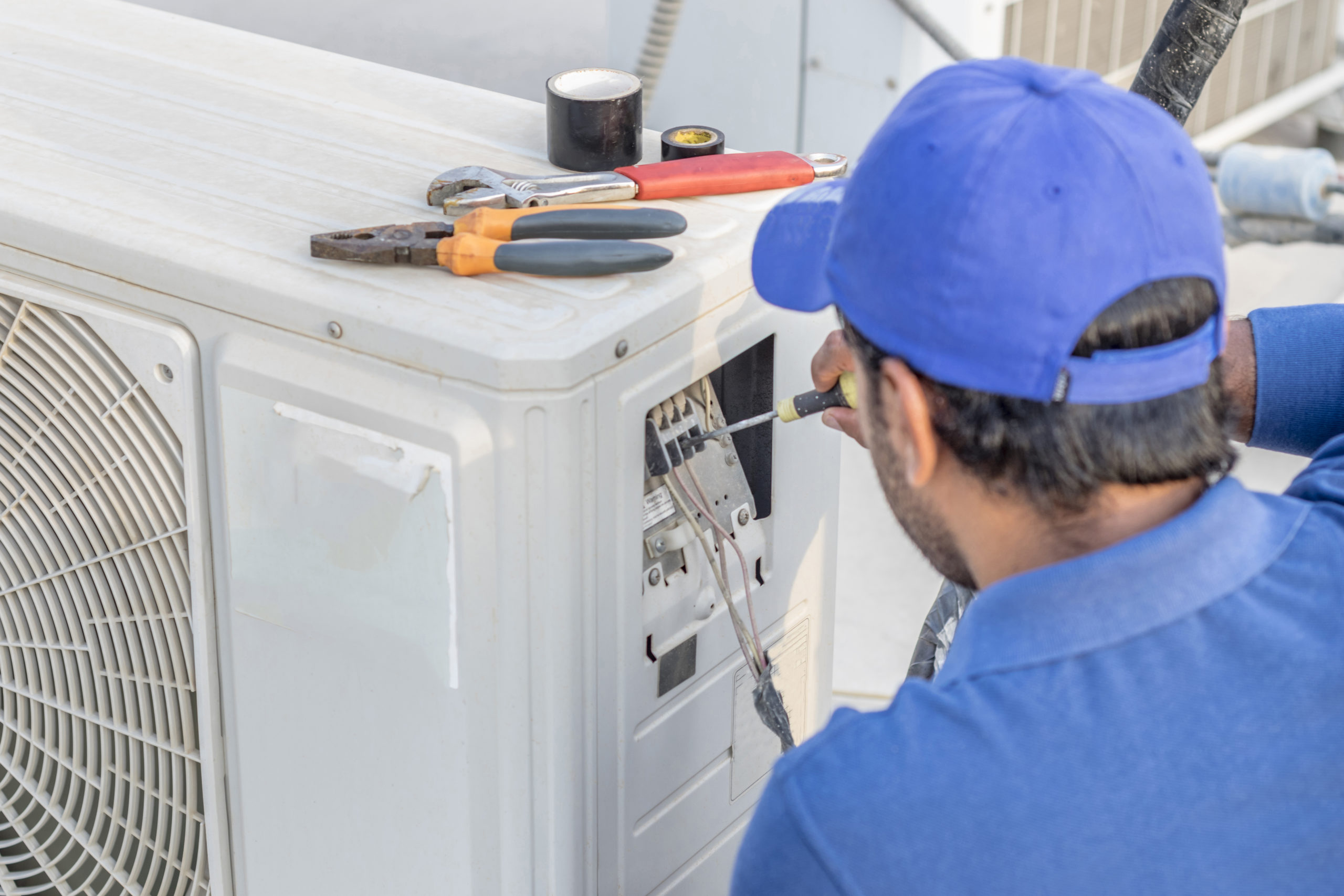Air conditioning maintenance is crucial for ensuring your system operates efficiently and lasts longer. Here are five simple yet effective DIY maintenance tips to keep your air conditioner in top condition:
Cleaning or Replacing Air Filters
One of the easiest tasks you can do to maintain your air conditioner is regularly cleaning or replacing the air filters. Clogged or dirty filters can restrict airflow, reducing the system’s efficiency and causing strain on the components.
Checking and Cleaning Condenser Coils
The condenser coils, located in the outdoor unit, can accumulate dirt and debris over time, hindering the heat exchange process. Regularly check and clean the condenser coils to ensure optimal performance.
If you’re facing issues with your cooling system as the temperatures rise, it’s crucial to address them promptly to ensure your home remains comfortable. For reliable air conditioning repair, consider reaching out to professionals. They can help diagnose and fix any problems, ensuring your system runs efficiently when you need it most. Whether it’s routine maintenance or emergency repairs, expert help is just a click away.
Inspecting and Cleaning Evaporator Coils
Similar to the condenser coils, the evaporator coils can also collect dust and dirt, affecting the cooling process. Inspect and clean the evaporator coils annually to prevent efficiency loss and potential breakdowns.
Clearing Debris from the Outdoor Unit
Ensure the area around the outdoor unit is free from debris such as leaves, grass clippings, and branches. Trim any vegetation and remove debris to maintain proper airflow and prevent overheating.
Troubleshooting Common Air Conditioning Issues
Despite regular maintenance, air conditioners can encounter issues from time to time. Here are some common problems you may encounter and how to troubleshoot them:
Air Conditioner Not Cooling
If your air conditioner is running but not cooling effectively, check the thermostat settings and ensure it’s set to cool mode. Additionally, inspect the air filter for dirt or clogs and clean or replace it if necessary. If the issue persists, it could indicate a more serious problem such as refrigerant leaks or compressor issues, requiring professional attention.
Air Conditioner Leaking Water
Water leaks from the air conditioner can indicate clogged drain lines or a malfunctioning condensate pump. Turn off the unit immediately to prevent water damage and inspect the drain lines for clogs. Clear any obstructions and ensure proper drainage. If the problem persists, contact a professional technician to assess and repair the issue.
Frozen Evaporator Coil
A frozen evaporator coil is often caused by restricted airflow or low refrigerant levels. Turn off the air conditioner to allow the ice to melt, then check and replace dirty air filters. If the issue persists, it may indicate a refrigerant leak or other underlying problems, requiring professional diagnosis and repair.
FAQs (Frequently Asked Questions)
What is the recommended frequency for air conditioning maintenance?
Routine maintenance should be performed at least once a year to ensure optimal performance and prevent costly repairs.
How can I tell if my air conditioner needs maintenance?
Signs such as reduced airflow, strange noises, foul odors, or uneven cooling indicate that your air conditioner may require maintenance.
Can I do maintenance on my air conditioner myself?
While some maintenance tasks can be done DIY, such as cleaning air filters and clearing debris, it’s recommended to have professional maintenance annually for thorough inspection and servicing.
How much does professional air conditioning maintenance cost?
The cost of professional maintenance varies depending on factors such as the size of the system, the extent of services provided, and the contractor’s rates. On average, expect to pay between $100 to $300 per visit.
Conclusion
Proper maintenance is key to ensuring your air conditioner operates efficiently, reliably, and lasts longer. By following DIY maintenance tips, troubleshooting common issues, and scheduling professional services as needed, you can keep your air conditioning system in peak condition year-round.




